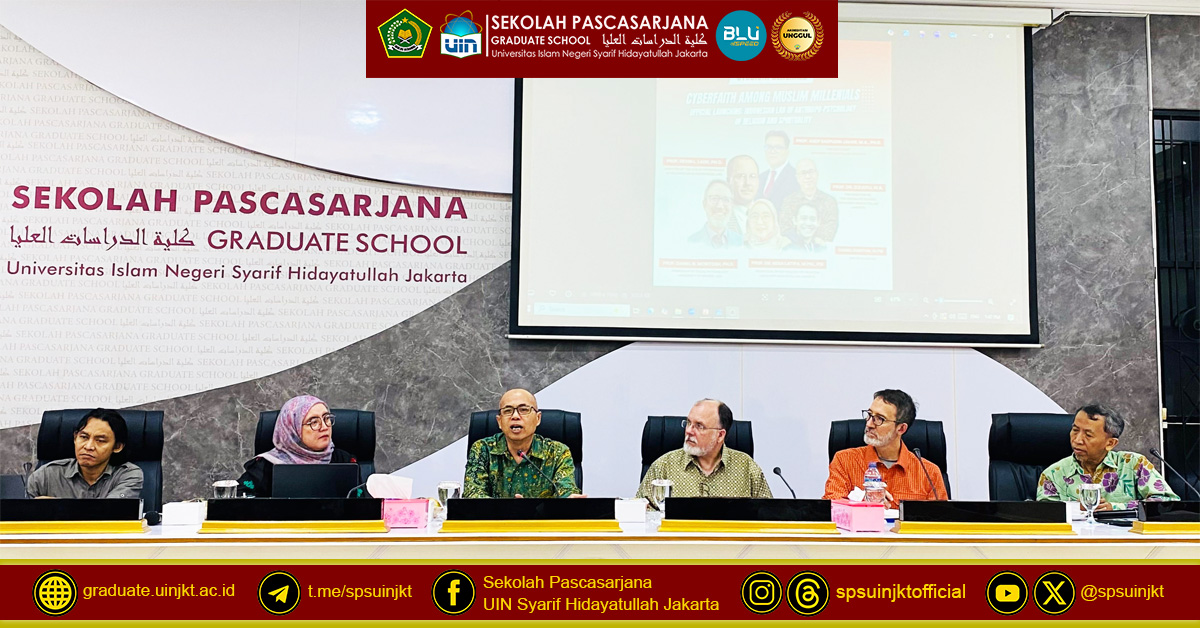Studium Generale Cyberfaith among Muslim Millenials: Indonesia's Gen-Z Makes the Internet a New Worship Space
Auditorium Prof. Dr. Suwito, MA SPs UIN Jakarta, SPs NEWS - A fundamental shift is taking place in the religious landscape in Indonesia. The Graduate School (SPs) of UIN Syarif Hidayatullah Jakarta held a Studium Generale entitled "Cyberfaith among Muslim Millennials" on Wednesday, November 19, 2025. Located at the Auditorium of Prof. Dr. Suwito, MA, this event was not only a discussion forum, but also marked a new milestone with the inauguration of the Indonesian Lab of Anthropo-psychology of Religion and Spirituality.
Director of SPs UIN Jakarta, Prof. Dr. Zulkifli, MA, opened the event with great enthusiasm. In his remarks, he emphasized that this forum is a tangible manifestation of the institution's commitment to bridging psychology, culture, and faith. The new laboratory initiated by Prof. Rena Latifa and his team was introduced as a pioneering initiative to encourage world-class research, examining contemporary issues such as mental health to philanthropy in the context of modern Islamic studies.
This event presents cross-continental experts. From the United States, Prof. Kevin L. Ladd, Ph.D. (Indiana University South Bend) and Prof. Daniel N. McIntosh, Ph.D. (University of Denver) were present. Meanwhile, from within the country, Prof. Dr. Rena Latifa, M.Psi., Psi. (UIN Jakarta) and Daniel Rabitha, M.Psi. (BRIN Researcher) were present, and moderated by Asep Haerul Gani.
One of the main highlights of this event was the dissemination of the results of strategic research entitled "Cyber Faith among Muslim Millennials". The findings of this research have even been converted into a practical guidebook titled "Religion in the Cyber World". This book is expected to be a navigation compass for the younger generation so that they do not get lost in the midst of the noisy and low digital religious information.
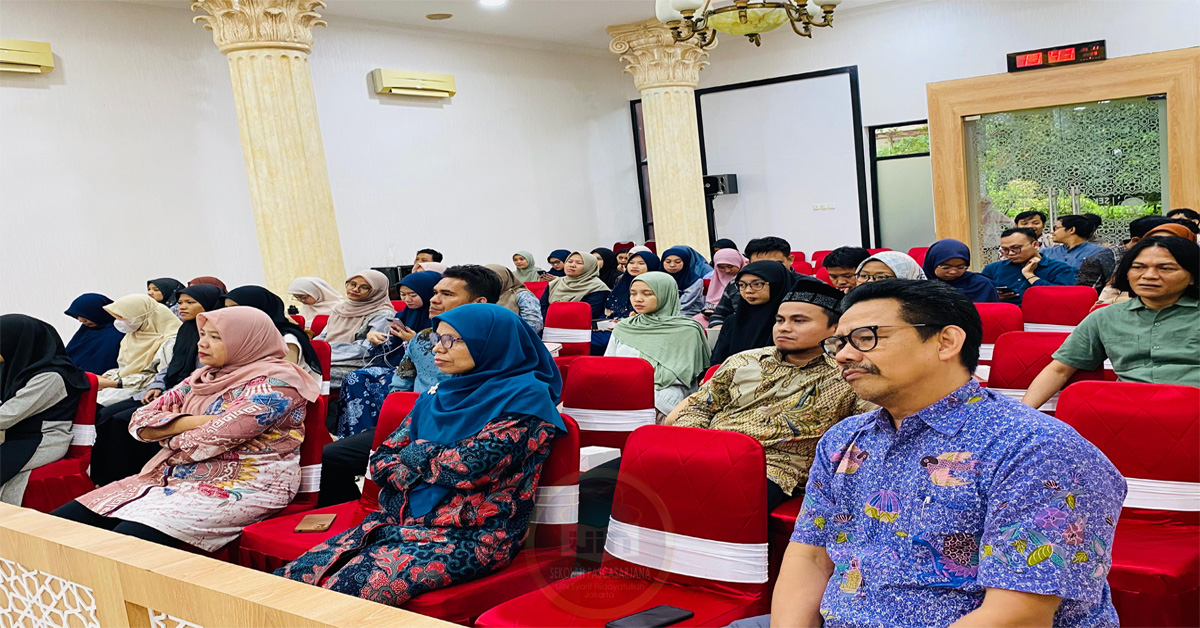
Indonesian Muslim Religiosity in the Virtual World
Prof. Rena Latifa and Daniel Rabitha in their presentations revealed an interesting fact that the digital space has now turned into a "new square" for more than 200 million internet users in Indonesia. For Gen-Z, gadgets are no longer just a means of communication, but the main means of expressing faith, ranging from virtual recitation via Zoom, digital zakat donations, to learning from "ustadz-influencers".
This phenomenon creates a very fluid religious landscape. Religious authority is no longer monopolized by traditional institutions or elder kiai, but has shifted to popular figures on YouTube and TikTok. However, behind this ease of access, there is a risk of shallowness in religious understanding or a phenomenon called "TikTok-isation" of faith.
However, the study of 1,034 Gen-Z respondents brought comforting news: this generation has not completely abandoned the old ways. They adopted a "hybrid" religious style. Gen-Z enjoys the flexibility of online content, yet still recognizes that face-to-face (offline) meetings are irreplaceable for gaining depth of knowledge and strong spiritual emotional bonds.
The research findings also dismiss the notion that Gen-Z is passive consumers who are easily driven by hoaxes. The majority of respondents showed a healthy skepticism; They actively carry out tabayyun or verify the truth of information. They selectively choose ustadz based on scientific credibility, not just virality, making the internet a tool to find inner peace that remains critical.
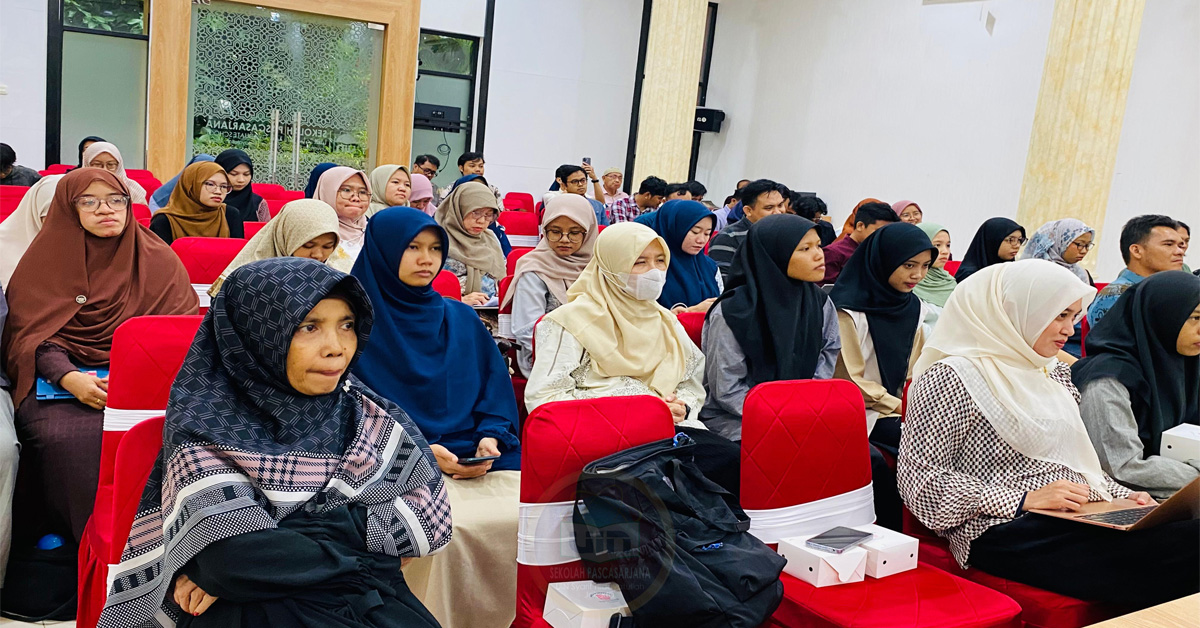
Digital Devotion
The global perspective was enriched by Prof. Kevin Ladd's presentation on "Digital Devotion". Kevin invites the audience to dive into the concept of "Pixelated Piety" or pixelated piety, where the boundary between the real and virtual worlds is increasingly blurred. He questions the essence of modern worship: do the people really "go" to worship, or simply "watch" the worship procession through a screen?
Kevin gave real examples of astonishing spiritual technological innovations, such as the "AI Jesus" phenomenon in Lucerne, "GitaGPT", to electronic prayer mats. The presence of this technology triggers a tension between a lasting spiritual experience and an ephemeral digital sensation, changing the way humans define godliness.
Furthermore, Kevin emphasized the psychological impact of this digital devotion. It raises a critical question: does this technology succeed in building a solid community, or does it deepen social isolation? The biggest challenge today is ensuring technology serves as a bridge of reconnection between people, not a trigger for alienation in the midst of a virtual crowd.
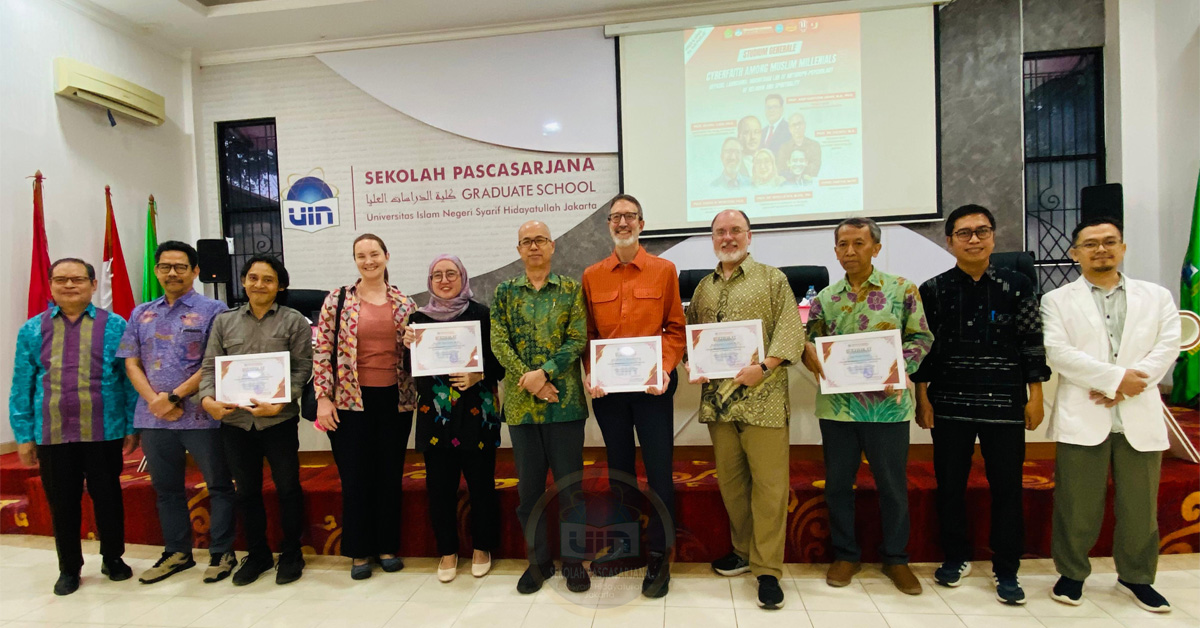
Online Religious Identity Negotiation
Meanwhile, Prof. Daniel N. McIntosh highlighted the other side of digital interaction, namely identity negotiation. In his presentation, McIntosh explained how the disintegration of physical religious communities often triggers psychological pressure, prompting individuals to seek "sanctuary" in cyberspace in order to reclaim their identity.
Using the Networked Social Identity framework, McIntosh explained that social media now functions as a "safe space" that offers anonymity. When someone loses their primary identity as a result of leaving their old group, internet algorithms help them find new groups to share stories with without fear of judgment.
However, this phenomenon is like a double-edged sword for mental health. On the one hand, online communities such as Reddit or Facebook groups can be a means of healing trauma and a bridge to the "new self". But on the other hand, there is a risk of being trapped in a perpetual cognitive dissonance with no real resolution.
McIntosh also warned about the emergence of "new identities" in the digital space that could hinder personal development. Often, individuals receive only emotional validation in the absence of progress in the process of identity maturation after faith deconstruction, leaving them trapped in psychological stagnation.
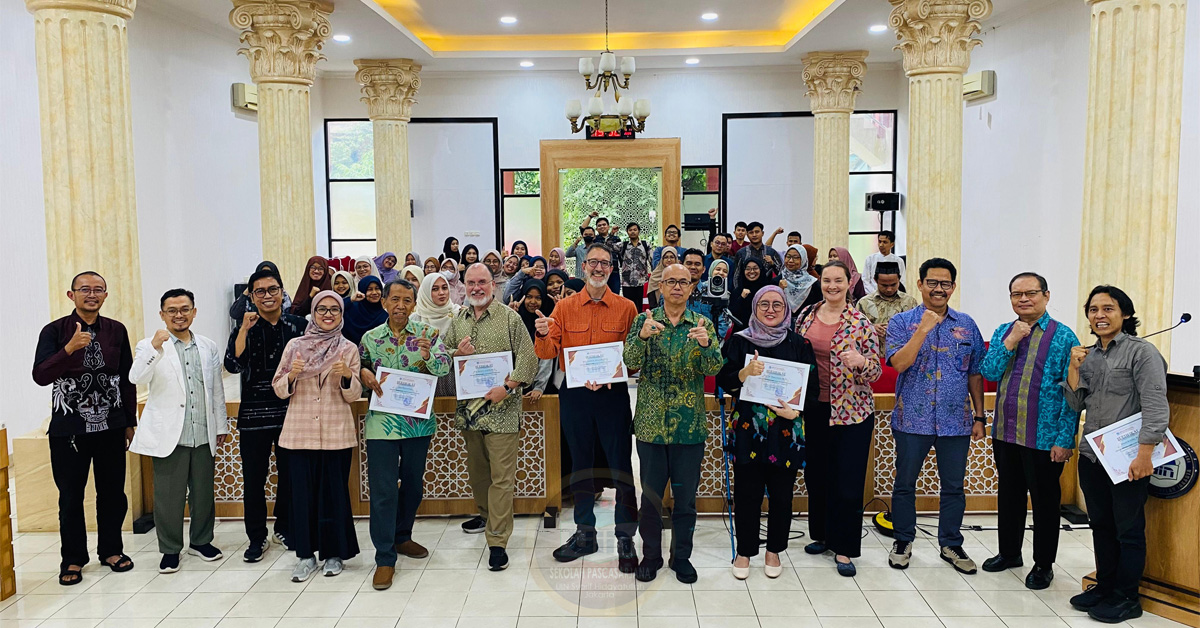
In the end, this Studium Generale concluded that Cyberfaith is an inevitable reality that must be faced wisely. The internet is just a tool; The key lies in how users balance the ease of technology with the depth of spirituality.
The event was closed with optimism that through the launch of the Indonesian Lab of Anthropo-psychology of Religion and Spirituality, UIN Jakarta will continue to be at the forefront of providing relevant academic solutions. By understanding the phenomenon of Cyberfaith, the community is expected to be able to maintain the authenticity of faith in the midst of the rapid flow of digitalization. (YES)

